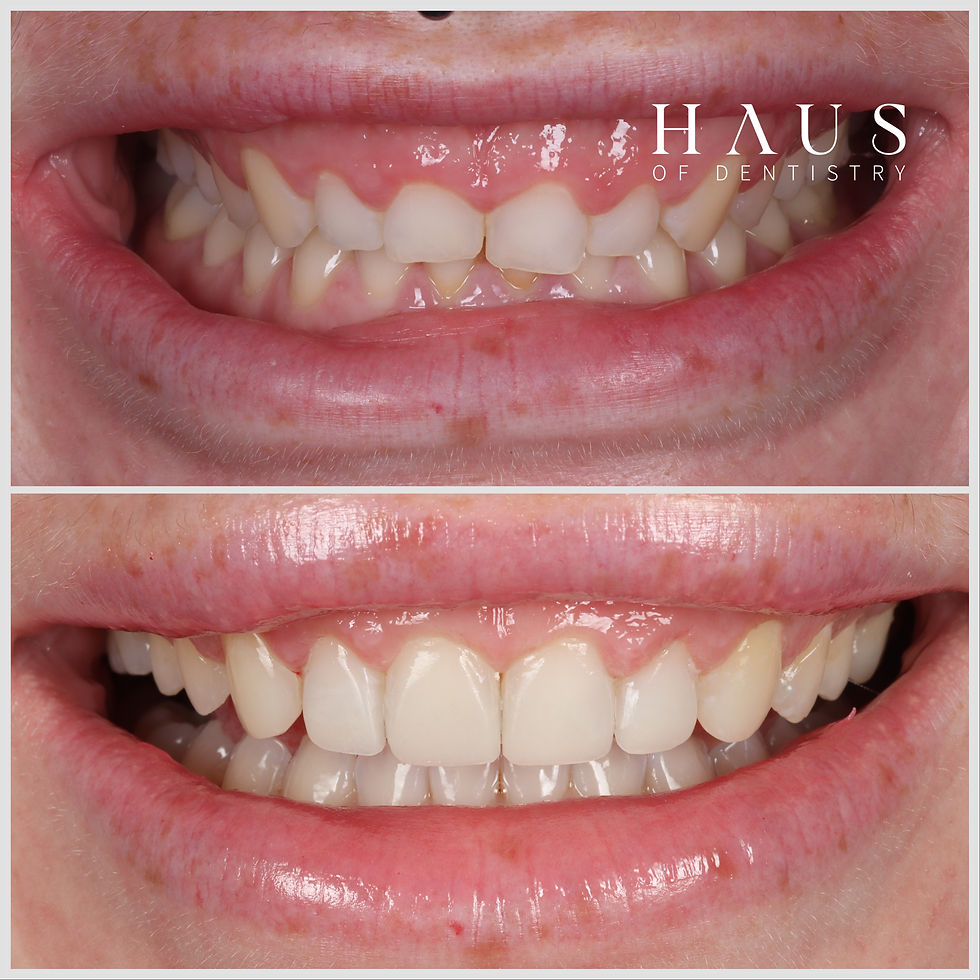Teeth sensitivity is a common issue experienced by many people, often causing discomfort when eating, drinking, or even brushing. But what causes this sensitivity, and what steps can you take to treat it effectively? In this article, we’ll explore the reasons behind sensitive teeth, the symptoms to watch out for, and the most effective treatments and care methods to relieve the discomfort.

What is Teeth Sensitivity?
Teeth sensitivity, or dentin hypersensitivity, occurs when the underlying layer of your teeth—called dentin—becomes exposed. This exposure can result in sharp pain or discomfort, especially when consuming hot, cold, sweet, or acidic foods and drinks. Teeth sensitivity is not uncommon, but understanding its root causes can help manage the condition effectively.
What are the Causes of Teeth Sensitivity?
If you’ve ever wondered, "What causes sensitive teeth?" you’re not alone—this is a frequent dental concern. Multiple factors can trigger tooth sensitivity, from brushing habits to dietary choices. Here are some of the most common causes:
Brushing Too Hard
Using excessive force or a hard-bristled toothbrush can erode the enamel, the protective outer layer of your teeth. This erosion exposes the dentin, leading to increased sensitivity over time.
Acidic Foods and Drinks
Consuming large amounts of acidic products—such as citrus fruits, soda, or vinegar—can wear down enamel. This makes the teeth more vulnerable to external stimuli, resulting in heightened sensitivity.
Receding Gums
As gums recede, the sensitive roots of the teeth become exposed, leading to discomfort. Receding gums are often caused by gum disease or improper brushing techniques.
Tooth Decay
Cavities create openings in the enamel, exposing the dentin to external factors like temperature changes and sugar, causing sensitivity and pain.
Gum Disease
Inflamed gums due to plaque build-up can pull away from the teeth, exposing the roots. This process can lead to both gum discomfort and increased tooth sensitivity.
Cracked or Chipped Teeth
Damaged teeth, whether from injury or wear, can expose the inner layers of the tooth, causing sensitivity, especially when exposed to cold air or food.
Teeth Whitening and Mouthwash Products
Some whitening treatments and mouthwashes contain chemicals that can temporarily cause or worsen sensitivity by irritating the teeth and gums.

What are the Symptoms of Teeth Sensitivity?
Symptoms of sensitive teeth can vary in intensity and duration. Here are some common signs:
Pain when eating hot or cold foods
Discomfort when consuming sweet or acidic items
Tingling or stinging sensation in the teeth
Sensitivity to cold air or while brushing teeth
Sharp pain that occurs intermittently or with specific triggers
How Do You Care and Treat Your Teeth Sensitivity?
Managing tooth sensitivity often requires a combination of good oral care habits and treatments. Below are the key strategies you can follow to care for and treat sensitive teeth:

Teeth Sensitivity Care
Contact us if you need professional guidance or further assistance with your sensitive teeth.
Use Desensitizing Toothpaste
Specialised toothpaste can block nerve sensations, providing relief from discomfort. Look for products containing potassium nitrate or strontium chloride for the best results.
Try a Soft Toothbrush
Switching to a toothbrush with soft bristles reduces the wear on enamel and helps prevent gum irritation. Brush gently to maintain both oral hygiene and enamel health.
Avoid Acidic Foods and Drinks
Reducing the intake of acidic items protects your enamel and helps manage sensitivity. Try to rinse your mouth with water after consuming acidic food to minimise the impact.
Maintain Good Oral Hygiene
Regular brushing and flossing keep plaque build-up in check and help prevent gum disease, which is a major cause of sensitivity. Using fluoride toothpaste can also strengthen your enamel.
Visit Your Dentist for Regular Checkups
Routine dental checkups ensure that any potential issues, like tooth decay or gum disease, are caught early. Your dentist can provide personalised recommendations to manage sensitivity effectively.
Teeth Sensitivity Treatment
Explore our dental services to find the right treatment for your condition. Below are some common treatment options for sensitive teeth:
Desensitization Treatments
Your dentist may apply desensitising agents directly to the affected teeth, reducing the sensitivity by blocking nerve pathways.
Fluoride Treatments
Fluoride varnishes or gels applied during dental visits help strengthen enamel and reduce sensitivity by building a protective barrier over exposed areas.
Dental Bonding
For teeth with exposed roots or minor cracks, bonding can provide relief. In this procedure, a tooth-coloured resin is applied to cover the exposed areas, protecting them from further damage.
Root Canal Treatment
In severe cases, where the sensitivity is due to deep-rooted issues, a root canal may be recommended. This treatment removes the affected nerve, eliminating pain and discomfort altogether.
By understanding what causes tooth sensitivity and implementing effective care and treatment strategies, you can significantly improve your oral health. If you are experiencing persistent discomfort, don’t hesitate to contact us or explore our dental services to find a solution tailored to your needs.

Comments